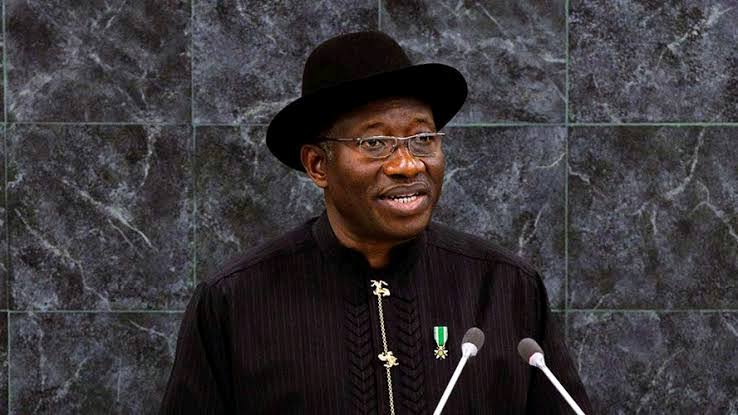By Prince Ademola Adedeji
Email: adedejiade98@gmail.com
Recent political discourse surrounding the 2027 elections has revived debates about Nigeria’s past and present leadership. Dr. Nnaoke Ufere’s article, “2027 and Beyond: Why Northern Elites Must Rethink Their Strategy,” presents a deeply biased and ahistorical assessment of former President Goodluck Jonathan’s leadership, while glossing over the catastrophic failures of the current administration. This article presents a detailed, fact-based comparison of the Jonathan and Tinubu presidencies, examining economic management, democratic governance, security, and corruption. The evidence shows that despite criticisms, Jonathan’s administration performed significantly better than Tinubu’s in nearly every critical sector.
If Nigeria truly seeks progress, we must evaluate leaders based on policy impact, democratic values, and economic management, not elite power games. By these metrics, Jonathan out-performs Tinubu in nearly every aspect. While critics dismiss Goodluck Jonathan as a weak leader, a closer examination reveals that his administration demonstrated more foresight, economic prudence, and respect for democratic institutions than the current government of President Bola Tinubu.
1. Economic Management: Prudent Reform vs. Reckless Policy
Fuel Subsidy Removal: Jonathan’s Prudence vs. Tinubu’s Hardship:* One of the most glaring contrasts between Jonathan and Tinubu is their approach to fuel subsidy removal. President Jonathan, recognizing the long-term economic implications of subsidy dependence, attempted a phased and strategic removal. At the time, petrol was sold at N97 per litre, and his administration proposed reinvesting the savings into critical infrastructure and social programs. Despite facing massive resistance, politically weaponized protests, spearheaded by none other than Bola Ahmed Tinubu and his allies, who branded Jonathan as “clueless” and insensitive. Yet, under Jonathan, Nigeria’s economy remained relatively stable.
GDP Growth & Economic Stability:
• Nigeria’s economy grew at an average of 6% annually under Jonathan.
• Inflation remained in single digits (8-9%), and the exchange rate was stable (N150-N170 per dollar)
• Nigeria overtook South Africa as Africa’s largest economy in 2013.
*Bola Tinubu’s Economic Catastrophe (2023-Present)*
The same Tinubu, who led protests for subsidy removal, abruptly ended it on his inauguration day without any concrete plan to cushion the effect:
• Petrol prices jumped from N185 to over N700 per litre—a 600% increase.
• Inflation skyrocketed to 33.69% (highest in 28 years).
• Naira collapsed from N460/$1 to N1,700/$1 in the parallel market.
Failed Palliatives & Rising Poverty:
• N5 billion per state for palliatives disappeared without impact.
• Hunger crisis escalated over 80 million Nigerians now live in extreme poverty (World Bank).
• Unemployment continues to rise.
Worse still, Tinubu’s government has failed to deliver the promised palliative measures effectively. Hunger and poverty have reached alarming levels, with millions of Nigerians struggling to afford basic meals—a far cry from Jonathan’s era when economic policies were more measured and less chaotic.
2. Democracy & Rule of Law: Tolerance vs. Dictatorship.
Another critical difference lies in their approach to democracy, press freedom, and the rule of law.
Under Former President Jonathan, Nigeria was rated “one of the most press-friendly nations in Africa.” Media houses operated without fear of repression, and opposition voices were not silenced, while President Tinubu’s administration continues media Suppression:
• Segun Olatunji (FirstNews editor) abducted by soldiers for criticizing the government.
• Increased harassment of critical journalists (e.g., invasion of Daily Trust offices). And many more.
Judicial Independence: The judiciary delivered judgments without overt political interference—unlike today, where court rulings are often predictable and skewed in favor of the ruling APC.
• Court rulings were unpredictable and fair, no evidence of executive interference.
• Opposition parties won key case (e.g., Amaechi vs. PDP in 2007).
Judicial Capture:
• Courts now pre-announce judgments; Court judgments are now pre-written and leaked.
• Judges openly favor APC in politically sensitive rulings.
*Police & Institutional Abuse:* Former President Jonathan never extended the tenure of an Inspector-General of Police (IGP) for political reasons. He respected constitutional limits, unlike Tinubu, who illegally retained the IGP, Kayode Egbetokun, beyond his statutory retirement date—a clear abuse of power. Under President Tinubu, Nigeria is witnessing a disturbing slide into authoritarianism, The Nigeria Police have become more brutal, with increased cases of extrajudicial killings and suppression of protests.
Tinubu’s Security Failures (2023-Present): Under Tinubu, insecurity has worsened; bandits now attack military bases, kidnappers on the rise, herdsmen killing daily, IPOB causing Havoc in the South-East, and terrorists operate freely in the North-West. Over 1,500 Nigerians kidnapped in 2024 alone (SBM Intelligence).
3. Corruption: Hypocrisy of Tinubu’s Anti-Corruption Claims
Tinubu’s allies accuse Jonathan of corruption, yet no high-profile corruption conviction has been secured under Tinubu. His administration is riddled with opaque deals (e.g., the N3.7 trillion padded 2024 budget, the controversial Lagos-Calabar coastal highway contract awarded without due process). Under Jonathan, corruption was investigated and debated openly—unlike now, where whistleblowers are harassed (e.g., Betta Edu’s scandal, which was swept under the carpet).
Jonathan Was Better—Tinubu Is a Disaster
Dr. Ufere’s argument that Jonathan is “ill-equipped” collapses under scrutiny. By every metric: economic management, democratic values, security, and corruption. Jonathan performed better than Tinubu. The “Jonathan Option” isn’t about zoning; it’s about restoring competent, humane governance.
Tinubu, on the other hand, has proven to be more authoritarian, economically reckless, and less tolerant of dissent, than Jonathan ever was. If Nigeria truly seeks progress, we must reject revisionist propaganda and acknowledge that Goodluck Jonathan’s leadership was far more inclusive, transparent, and humane than the current administration’s oppressive and chaotic rule. Jonathan’s administration, despite its flaws, maintained economic stability, respected democratic norms, and avoided the kind of dictatorial excesses we see today. Nigeria and Nigerians cannot survive four more years of Tinubu’s failures. Jonathan was not perfect, but he was far better than Tinubu.

